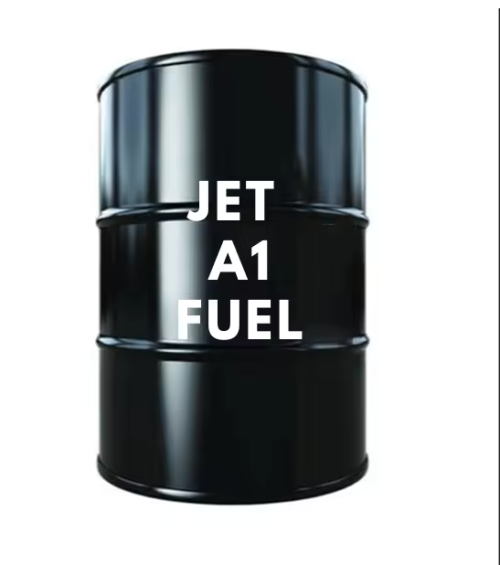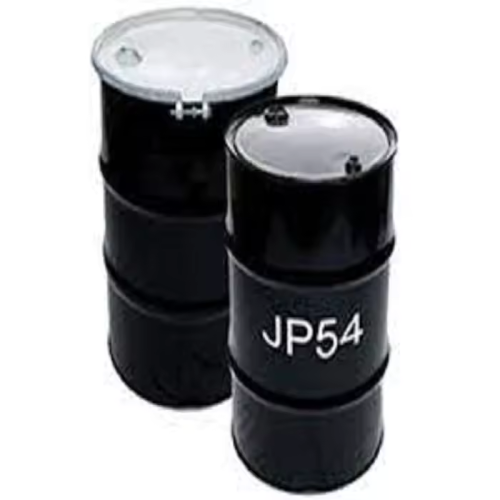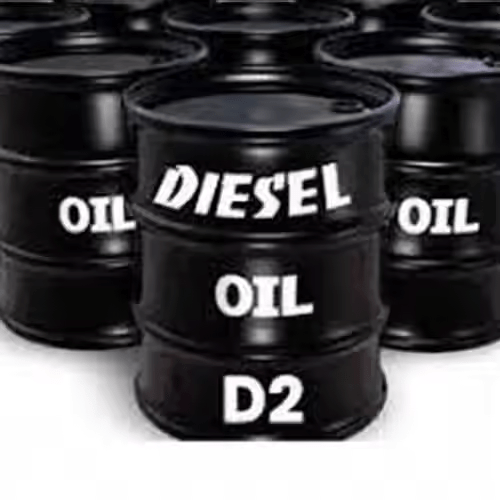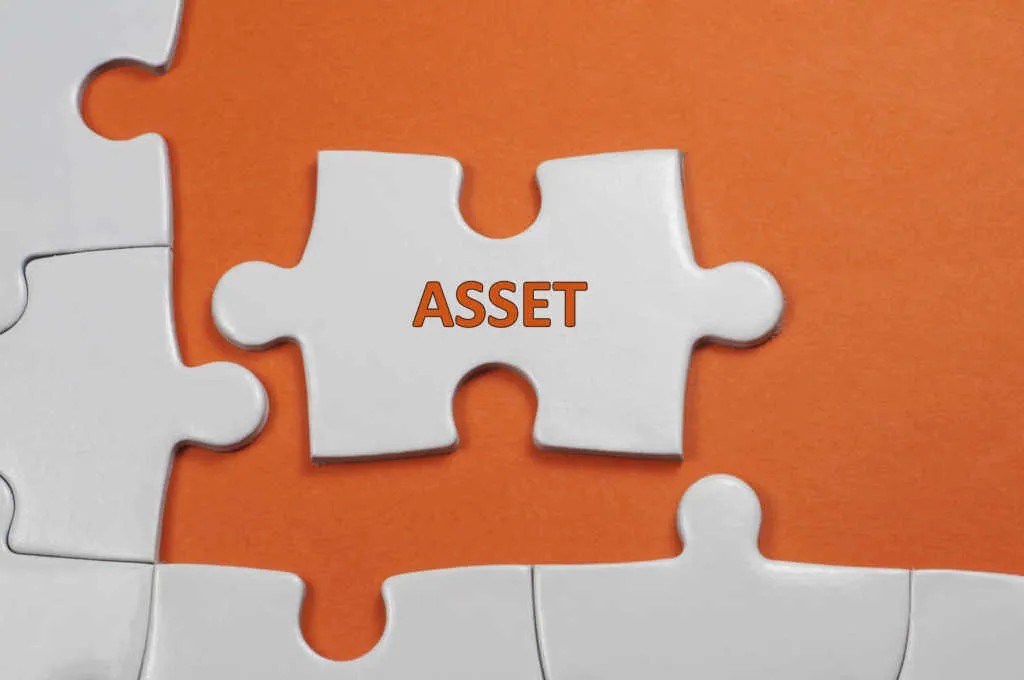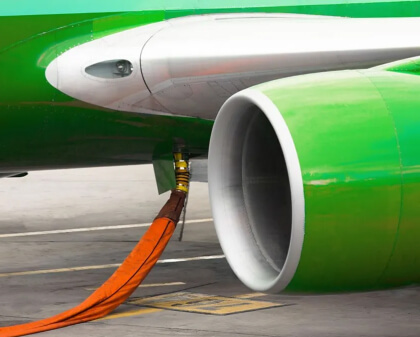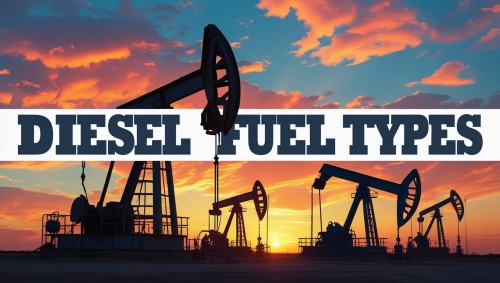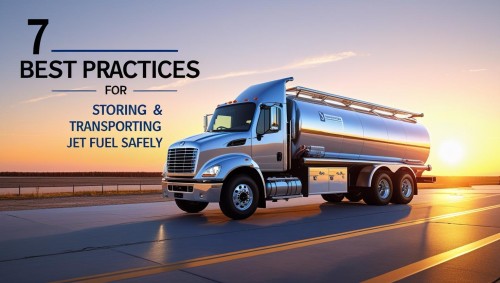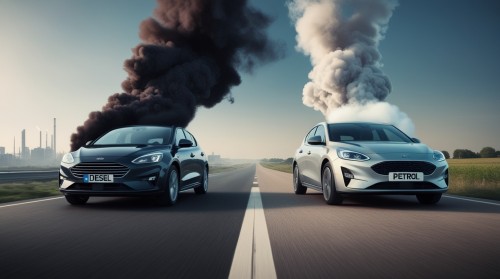Diesel fuel plays a crucial role in powering engines across various industries, including transportation, agriculture, manufacturing, and construction. But did you know there isn't just one type of diesel fuel? Several types of diesel fuel are available on the market, each with distinct characteristics, purposes, and standards. Understanding these differences can help businesses, suppliers, and consumers make informed decisions about the fuel they use. In this blog, we'll break down the primary types of diesel fuel, their applications, and what distinguishes them. Whether you're a fleet manager, fuel supplier, or simply curious about what goes into your diesel engine, this guide provides a comprehensive overview. Why Are There Different Types of Diesel Fuel? Different types of diesel fuels exist due to varying performance requirements, environmental regulations, climate considerations, and engine technologies. For example, a truck running through Canada's winter needs a different fuel than a generator operating in tropical conditions. Similarly, low-emission zones demand cleaner-burning diesel fuels. By classifying diesel into types, it becomes easier to ensure engines run efficiently, meet emissions standards, and adapt to different working environments. Let's now explore the most common types of diesel fuel available globally. 1. Petroleum-Based Diesel (Conventional Diesel) a) Diesel #1 (1-D) Diesel #1 is known for its lower viscosity and better cold-weather performance. It flows more easily at low temperatures, making it a popular choice in regions with frigid winters. Key Features: Lower paraffin content Higher volatility Excellent for cold climates Slightly lower energy content than Diesel #2 Diesel #1 is commonly used in cold regions, particularly in generators, construction equipment, and vehicles operating in areas prone to snow. b) Diesel #2 (2-D) This is the most widely used diesel fuel in the world. It's what you typically find at diesel pumps. Diesel #2 offers a higher energy content, resulting in improved fuel economy and increased power per gallon. Key Features: Higher viscosity Better lubrication for engine parts Ideal for high-load and long-haul applications Better fuel economy than Diesel #1 Trucks, buses, and heavy-duty vehicles primarily rely on Diesel #2 because of its performance and cost-effectiveness. 2. Ultra-Low Sulfur Diesel (ULSD) As emission standards became stricter, particularly in the US and Europe, Ultra-Low Sulfur Diesel (ULSD) was introduced to reduce air pollution. ULSD contains a maximum of 15 parts per million (ppm) of sulfur, which is much lower than older diesel formulations. Key Benefits: Significantly reduces sulfur dioxide emissions Compatible with modern diesel engines equipped with particulate filters Helps extend the life of emission control systems Where It's Used: ULSD is now the standard diesel fuel used in road vehicles across the US, EU, and many other regions. It's also used in off-road applications such as mining and marine transport in countries where regulations apply. 3. Biodiesel (B100 and Blends like B20) Biodiesel is a renewable alternative to petroleum-based diesel. It's made from vegetable oils, animal fats, or recycled restaurant grease. Biodiesel can be used in pure form (B100) or blended with traditional diesel (such as B5, B20, or B50). Popular Blend Types: B5: 5% biodiesel, 95% petroleum diesel B20: 20% biodiesel, 80% petroleum diesel B100: 100% biodiesel (usually for special applications) Benefits: Renewable and biodegradable Reduces greenhouse gas emissions Produces fewer harmful particulates Limitations: May gel in cold weather Not all engines are compatible with high blends like B100 Biodiesel blends are gaining traction among environmentally conscious businesses and government fleets that aim to reduce their carbon footprint. 4. Synthetic Diesel (Gas-to-Liquid or GTL Diesel) Synthetic diesel is produced through chemical conversion processes, most commonly using natural gas in a method called Gas-to-Liquid (GTL) technology. Advantages: Cleaner-burning than conventional diesel High cetane rating for improved combustion Virtually sulfur-free and aromatics-free Drawbacks: More expensive to produce Less widely available Synthetic diesel is primarily used in specialized applications where emissions and performance are tightly controlled, such as in urban transport fleets or sensitive industrial zones. 5. Renewable Diesel (Not the Same as Biodiesel) Renewable diesel is often confused with biodiesel, but the two are chemically different. Unlike biodiesel, renewable diesel is made using hydrotreating processes that produce a fuel chemically similar to petroleum diesel. Key Differences from Biodiesel: Fully compatible with all diesel engines without modification Better cold flow properties Lower emissions profile Longer shelf life Renewable diesel is considered one of the most promising sustainable alternatives to conventional diesel. It is already being used in cities such as San Francisco and large fleets across Europe. 6. Marine Diesel and Heating Diesel Marine Diesel Oil (MDO) Marine diesel is used for ships and marine engines. It's similar to Diesel #2 but may contain more sulfur unless used in emission-controlled areas. Heating Diesel (Fuel Oil No. 2) Heating diesel, or home heating oil, is essentially the same as Diesel #2 but without road taxes. It's used in furnaces and boilers to heat buildings. Note: In some regions, dyed (red) diesel is used for tax-exempt, non-road uses like farming or heating. It's illegal to use this dyed fuel in on-road vehicles. 7. Additized Diesel Additized diesel includes additional chemicals or detergents to enhance performance or reduce engine wear. Common additives include: Cetane improvers Lubricity agents Corrosion inhibitors Anti-gel compounds for winter use This type is often used in high-performance engines or regions with harsh climates. Many premium diesel products at the pump are already additized. Choosing the Right Diesel Fuel Type When selecting diesel fuel, consider the following factors: 1. Climate If you're operating in freezing conditions, Diesel #1 or winterized ULSD might be necessary. For warmer regions, Diesel #2 will usually suffice. 2. Environmental Compliance If your area has strict emissions regulations, ULSD, biodiesel blends, or renewable diesel may be required. 3. Engine Compatibility Not all diesel engines are designed to operate on high biodiesel blends. Always check the manufacturer's specifications before switching fuels. 4. Availability and Cost Some fuel types, such as synthetic or renewable diesel, may be complex to find or more expensive than conventional diesel. 5. Performance Needs Heavy-duty applications may benefit from additized or higher-cetane diesel fuels, especially for better ignition and reduced engine knocking. Final Thoughts The world of diesel fuel is much broader than many people realize. From standard Diesel #2 to innovative renewable diesel options, each type has its role depending on the engine, environment, and regulations. Choosing the right diesel fuel is not just about filling up a tank; it's about ensuring optimal performance. It's about improving performance, reducing emissions, and aligning with global sustainability goals. Suppose you're a business or fleet operator. In that case, understanding the types of diesel fuel available can help you save money, comply with environmental laws, and ensure your engines run smoothly for years to come. Before making a switch or sourcing fuel in bulk, consult with your engine manufacturer or supplier to ensure compatibility. With the correct information, you'll be equipped to make the best decision for your fuel needs.
Southland Boundless Advisors Ltd. (T&T)
Southland Boundless Advisors Ltd (SLBA Ltd.)is based in the Republic of Trinidad and Tobago, West Indies and operates in several major subsectors globally:



.png)
